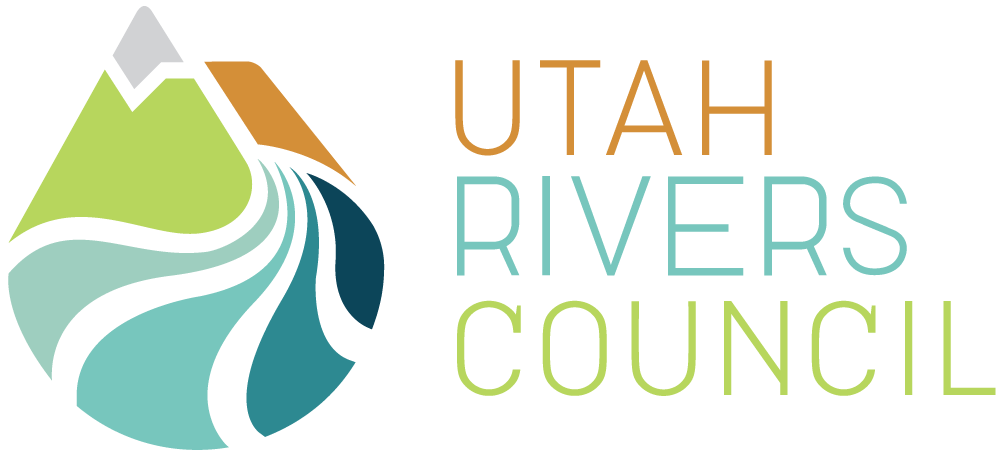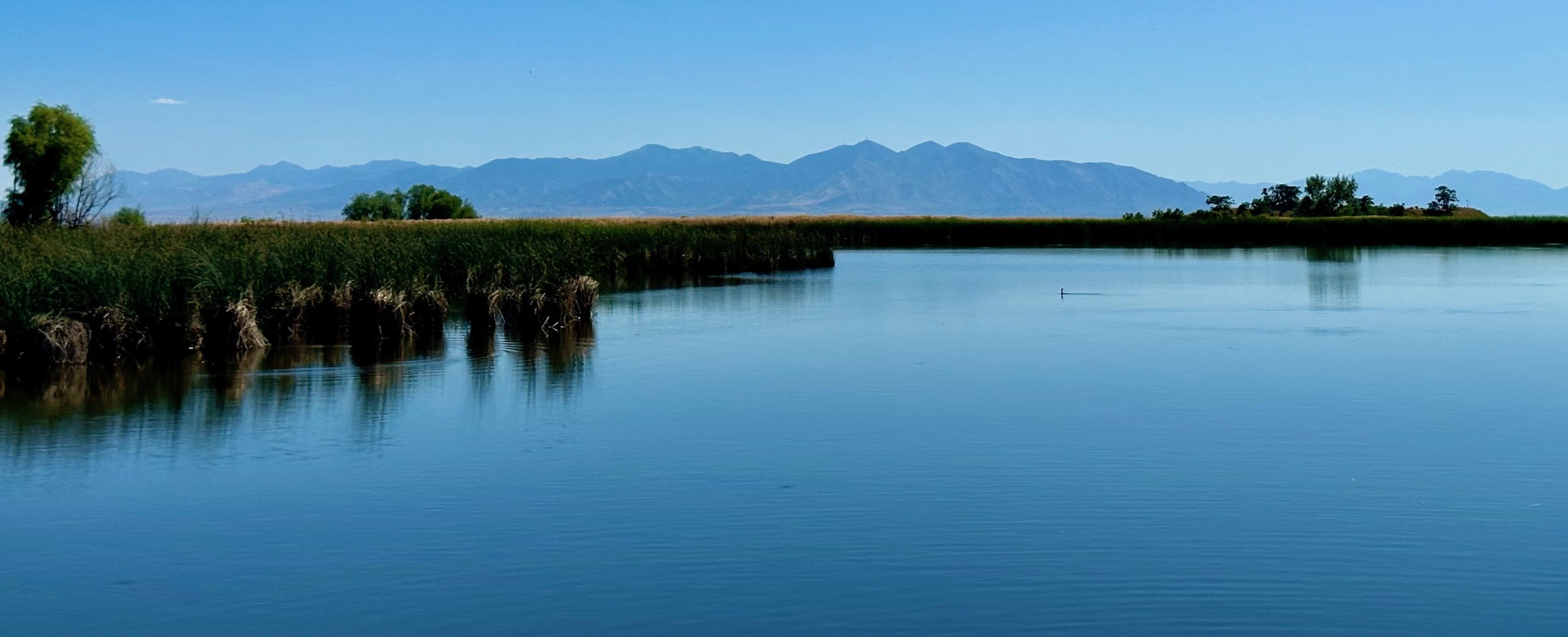We Are Suing the State for Its Failure to Protect the Great Salt Lake
The Utah Rivers Council has joined with Utah Physicians for a Healthy Environment, American Bird Conservancy, Center for Biological Diversity, and the Sierra Club to hold the state of Utah accountable for its maintain the basic health of the Great Salt Lake. Our coalition is represented by the excellent attorneys from Earthjustice.
Recognizing that Utah is going backwards in doing what is necessary to raise the Great Salt Lake, the Utah Rivers Council and partners are eager to use the judicial system to move forward in protecting the Lake for millions of Utahns and 10 million migratory birds. Some may be surprised to hear criticism of Utah since Lake levels have risen after spring runoff, but no substantive efforts have been taken to address the Lake crisis by the State of Utah.
Although an elaborate propaganda campaign has been waged to convince Utahns and the media that water levels have risen because of new water policies, the only reason 2023 Lake levels increased was because of a massive winter snowpack, a rise in lake levels which has been small, all things considered. Many bills have been written by water lobbyists and passed by the Utah Legislature over the last seven years that are accelerating the decline of the Great Salt Lake, including a law directing $60 million per year in new sales tax collections to divert the Lake’s largest water source, the Bear River.
The Great Salt Lake is a crucial wetland ecosystem for 10 million migratory birds and supports a $1.3 billion economy. Utah state officials have rejected many policy solutions proposed by Utah Rivers Council and other entities to raise Lake levels, demonstrating Utah's failure to address the pending Lake crisis.
The Utah Rivers Council wrote a bill to establish a minimum water level for the Great Salt Lake, run by Senator Nate Blouin, which failed to pass out of committee during the 2023 Utah Legislative Session. Governor Cox later called the measure a “dumb thing” in his monthly press conference. Because Utah has no goal defining what ‘saving’ the Great Salt Lake means, no plan exists to deliver the minimum water volumes necessary to raise Lake levels.
This failure to establish a goal and a water budget for the Lake benefits those who profit from upstream water diversions. It also ensures that very small and temporary water deliveries to the Lake can be celebrated as major accomplishments in the Utah media, to help fool people into believing Utah is moving forward to raise Lake levels. Such announcements are often converted into gallons of water, instead of acre-feet, to help baffle the public with a large number that sounds impressive.
The striking view of the Oquirrh Mountains as seen from the George and Dolores Eccles Wildlife Center in Farmington. Photo by URC staff member Matt Berry.
A striking view of the Oquirrh Mountains as seen from the George and Dolores Eccles Wildlife Center in Farmington.
Photo by URC staff member Matt Berry.
The Utah Rivers Council ran legislation in 2022 to create a Great Salt Lake Drought Contingency Plan, but that measure was halted in committee by House Republican leadership. Another URC bill in 2023 to transfer sales tax funding for new water diversions into Lake restoration activities was stopped by Republican House members. Many URC bills to phase out the taxes that lower Utah’s water prices to be the cheapest water rates in the U.S. have been stopped cold by Utah water lobbyists for more than twenty-five years. Low water rates encourage overconsumption of water and suppress the entire water market across Utah for conservation purposes.
The Great Salt Lake belongs to the people and Utah government has a responsibility to sustain the Lake for the public, a legal doctrine known as the Public Trust. This legal doctrine has been successfully litigated for decades across the country and helps ensure that the rights of the people are not ignored by politicians or agencies disinclined to serve those they claim to serve.
Utah has an obligation to ensure that the actions of the state do not harm the Great Salt Lake. Yet Governor’s Cox’s administration is working to advance Bear River Development-- which would lower the Great Salt Lake several more feet--and the Utah Legislature defeats bills to reduce water waste or protect the rivers that feed the Great Salt Lake.
After an all-time record low in 2022, Lake levels rose only because of a large snowpack in 2023. The Utah Legislature refused to let three Lake-saving measures out of committee during this period and Lake levels are starting the countdown to a new record low. Unless elected officials find the ethical courage to stand up to water lobbyists, the Great Salt Lake will continue to spiral deeper into irreversible crisis.
For nearly 30 years, we have been fighting to save the rivers that feed the Great Salt Lake by running legislation, working with cities to conserve water, and activating the grassroots to hold our elected officials accountable for their failures to protect Utah’s aquatic ecosystems for future generations. Utah’s outdated water policies encourage wasteful water use and allow destructive water diversions on Lake tributaries to proceed without any consideration of the Lake.
The Utah Rivers Council has tangible solutions to restore the Great Salt Lake with meticulously crafted legislation supported by multi-year lobbying campaigns. Time is running out for the Great Salt Lake, and we cannot afford to wait for Utah politicians to find the ethical courage to stand up to the water lobbyists who run our statehouse and write executive branch water policies. So, we shall see them in court.

